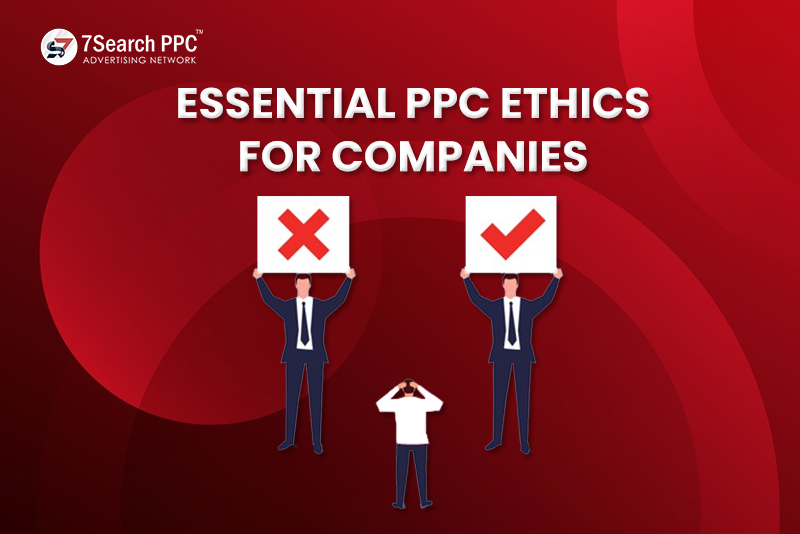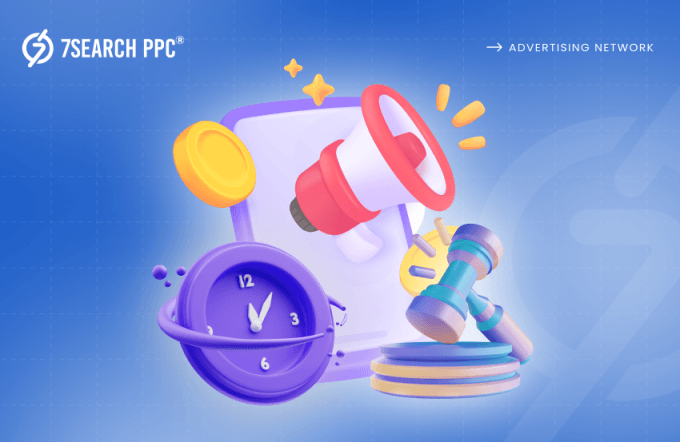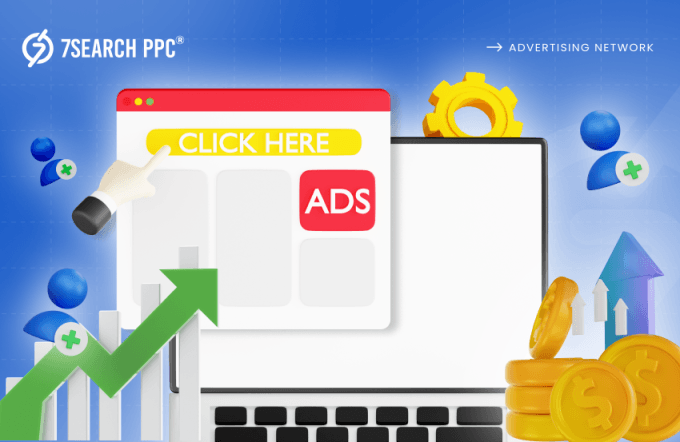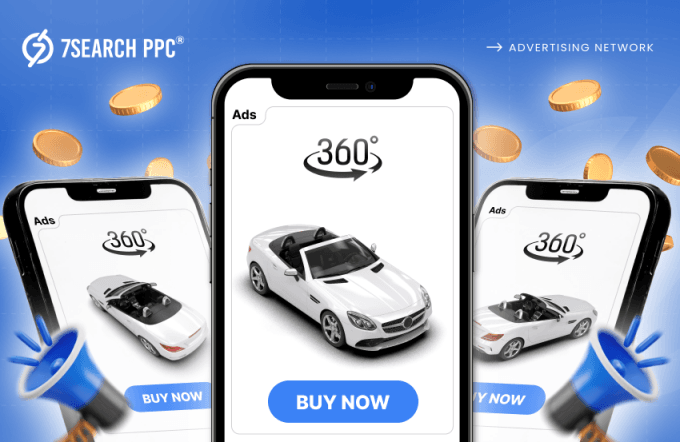Transparency has always been a concern when using PPC for advertising your brand or services. It may likely be just a small part of a more extensive series of antitrust investigations. Often, miscommunication and updates hamper search terms’ visibility. It’s a matter of concern about whether or not Google is blindsiding advertisers.
Naturally, this paves the way for us to discuss the ethical Connotations of PPC. Is it an ethical business practice or fair that people can pay to top the search results? Is “ethical PPC” as honest as it seems?
What is Ethical PPC advertising?
The concept of ethics in online PPC advertising is nothing new but as the industry continues to grow, new unethical tactics begin to emerge. Pop-ups aren’t as pervasive as they were in the ’90s but banner ads still seem to work. About four-in-10 people trust online banner ads. In this article, I’ll be looking at what ethical PPC is, what it entails, and why professionals should conform to the concept.
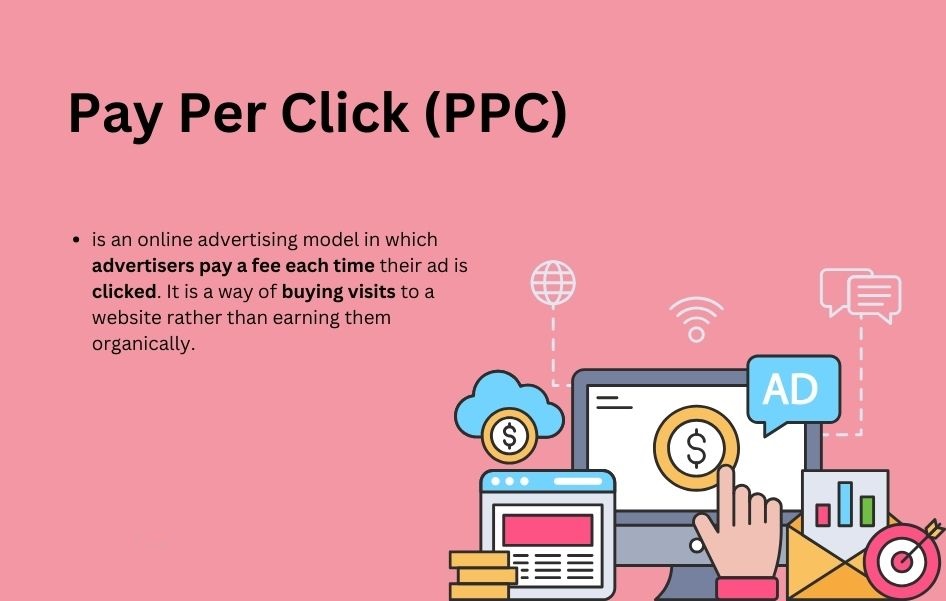
What does ethical PPC imply?
PPC campaigns that are steadfast to the ethics of paid media, and digital marketing are what ethical PPC means. It’s based on values such as expertise, authorization, and assurance and acknowledges things like transparency and genuineness.
Specifically, advertisers should use PPC advertising to their advantage by presenting user-focused content rather than trying to misuse them. In succession, Google should adhere to the same norms.
However, with friends’ recommendations remaining the most credible advertising form among consumers, PPC advertising have an inherent loophole. A large number of viewers already don’t rely on them, which is not a surprise considering these two essential questions:
How do I know what an ad is?
The fact is that you probably won’t. Earlier, paid ads used to be distinct from organic search results with their bright green outlined labels, but now they have been replaced with subtle black ‘Ad’ titles on platforms such as Google and other search engines.
While Google affirmed this would enable users to “quickly identify where the information is originating from,” this hasn’t been the case. Advertisers on Twitter were the first to state that it has led to the separation becoming even more complicated, making us question Google’s loyalty to the PPC community again.
It isn’t clear whether people comprehend when they’re clicking on an ad. New statistics show that 77% of people believe Google deceives users, using tricks to make them click on paid results rather than organic ones.
Is it fair that the most significant budgets always win?
Undeniably, money is a differentiator in pursuit of ranking. If you’ve got a huge budget, you can jump right to the top of the search results. It is because Google gives the ad with the highest Ad Rank top position on the results page, and one of the things it looks at is your maximum bid.
Many other factors influence your position, but two high-quality ads can have a completely different outcome if one has a higher spend. One of them is paying more for a better result – but it doesn’t consider how much hard work is involved in the business, the issues faced by smaller companies, etc.
So, while many articles will have you believe that Google only analyses your expected CTR, ad relevance, and landing page experience to determine your position, this isn’t necessarily true. You have to have some budget under your belt to compete, and not being able to do so will limit the amount of attention drawn to your ads.
For instance, Google’s top position results have an average CTR of 35%, which halves to around 15% for the second position. You need to have the money to get that high. Your impressions won’t be anywhere near the same level without it.
Three ways of remaining ethical in today’s scenario
Amidst Covid-19, there is also a circle of mistrust and a battle for conversions all at the same time. Exercising an ethical approach to digital marketing can work in your favor. After all, consumers are more likely to sway towards brands that align with their core values.
Here are three elements for you to think about:

Having the originality
The products and services you promote in your PPC advertising should be real, helpful to your users, and backed by a relevant governing body. For example, if you’re selling personalized diet goals, you should distance yourself from making any promises about weight loss; instead, provide truthful information about your offerings.
What’s more, if you’re trying to see results with a tighter budget, stick to A/B testing and make small changes. Emphasizing your products or services to a point where they seem too good to be true isn’t going to improve your ranking. Nor will it improve your conversions once someone clicks your ad. It will put them off your brand.
It would be best if you were honest with your audience to stand yourself in good stead with Google, so that’s something to keep in mind.
Enhancing aptness
Relevancy in your ads is essential to increase your Quality Score, but they should also give people what they’re expecting from an ethical viewpoint. Providing false or misleading information will deter you from building your brand – getting straight to the point will.
If you’re struggling to find relevant keywords, there are plenty of ways of finding them. For instance, you can take the help of Google’s Keyword Planner. It does the hard work for you by looking at the top-performing keywords relevant to your business and identifying new keywords that will increase visitors being free to use on top of it.
A headline that reflects what people are searching for attracts many more clicks, and Google celebrates these small wins by rewarding you with a higher Quality Score. Focusing on relevancy is a no-brainer.
Emphasizing customer relationships
With political advertising flooding our inboxes with fake news and endless scandals, the least you need to do is prioritize assisting your subscribers. Ruminate about what will help them before you jump to get more clicks.
Ethics in PPC implies providing valuable information people demand, which will encourage them to turn to your brand. It would be helpful if you also made a deliberate effort to avoid things like click fraud. Being an ethical brand is about acting morally in every sense. So trying to harm other people’s advertising won’t reward you with anything positive.
Going Beyond Ethics and Antitrust
Whether anyone will ever have a clear answer regarding PPC’s ethics, especially considering the actions we see from search engines? Exercising a more comprehensive understanding and taking these techniques into account now, you will be in a much better position to improve your PPC campaigns and draw in prospective buyers.
Frequently Asked Questions (FAQs)
Ethical Considerations of Advertising?
Ans. Ethical considerations in advertising involve transparency, truthfulness, and respect for consumers. Advertisers should avoid deceptive practices, respect privacy, and adhere to industry standards to build trust with their audience.
Benefits of PPC Advertising?
Ans. PPC advertising offers targeted reach, measurable results, and cost control. Businesses benefit from immediate visibility, precise audience targeting, and the ability to adjust campaigns in real time, maximizing the return on investment.
Effectiveness of PPC Advertising?
Ans. PPC advertising can be highly effective, providing instant visibility and measurable results. Success depends on factors such as keyword selection, ad relevance, and landing page quality. Regular optimization is crucial for sustained effectiveness.
Importance of Ethics in Advertising and Moral Principles?
Ans. Ethics in advertising are essential for maintaining credibility and fostering consumer trust. Advertisements should adhere to principles of honesty, fairness, and responsibility. Transparency, respect for diversity, and avoiding misleading claims are key ethical considerations in advertising.

